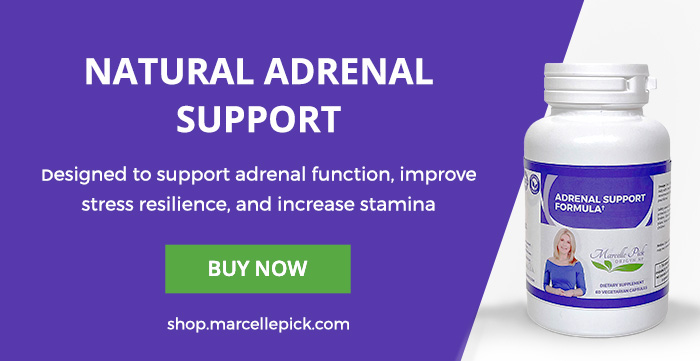The world is full of anxious women. I see it all the time in my practice; women come to me frequently to learn how to stop anxiety in their lives. I talk to people from every corner of the country and anxiety concerns are always brought up. Sometimes, their worry is warranted. But other times, women are constantly worrying about minor issues and find themselves asking in despair, “Why am I so anxious all the time?” or “How do I stop worrying?”
Everyone worries sometimes. Our brains are designed to worry; it helps keep us safe. But these days, women are worrying far too often. They’re anxious all the time, worrying about their health issues, their children’s success in school, the needs of aging parents, overwhelming responsibilities at work, traumatic events around the world. And worrying serves a purpose sometimes; it can spur you into action when necessary. But excessive worrying isn’t productive, especially when it’s about a situation beyond your control. And when the anxiety extends to even minor issues, it can stop you in your tracks.
One woman I know worries about losing her boarding pass every time she is traveling. She opens her bag to see that it’s there every few minutes until she hands it over to security. But her anxiety doesn’t end there! She’ll continue to worry she’ll lose her boarding pass between security and her gate. She is unable to stop this uneasy feelings until she is safely in her seat. She knows she’s anxious for nothing, but she hasn’t been able to eliminate her fears – and it seriously hinders her excitement about traveling, though she loves exploring new places.
So while some worry can be useful, keeping you alert and ready to confront unexpected challenges in day to day life, other anxiety can do more damage than good. Non-stop worrying, being constantly on edge, and obsessing over these anxious feelings can make life extremely difficult to navigate. And it can also have a huge impact on your physical health.
Your brain is “wired to worry” for survival purposes. And beyond the survival instinct, some interesting research has popped up over the past decade suggesting that some people have genes that make them more prone to anxiety. While this research is certainly intriguing, it doesn’t mean you have no control. Being aware of a genetic connection to anxiety can help you understand where the worry comes from – and what you can do to overcome it!
The first step to stop anxiety is understanding where your worry comes from. So, let’s take a look at what might be going on inside your fretful mind and body and learn how to stop anxiety at its source.
Physical Reactions to Anxiety
There is more evidence emerging all the time around how emotions can chemically change how your body functions. Extreme emotions are difficult to process, and when these emotions include fear and anxiety, it sets off your stress response. Here’s how it works: your brain sends out a danger signal, which prompts your adrenal glands to release a surge of stress hormones, including adrenaline/epinephrine, noradrenaline/norepinephrine, and cortisol. It’s these hormones that create wide ranging physical – and psychological – effects.
Now, I want to reassure you that this whole process is normal, and your body can easily adapt if you find calm resolution to whatever stimulated the worry. But if that stress response stays “on” for a prolonged period of time, your body may continue to spit out cortisol, which can send you into adrenal imbalance. I see all too often how consistently high cortisol impacts women, leading to uncomfortable symptoms and adrenal issues. There are so many ways I can help you turn this around, bringing your hormones back into balance. And when your body is balanced, these symptoms often disappear.
Anxiety is a widespread issue among Americans. In fact, according to the National Institutes of Health, more than 40 million adults fall somewhere on the diagnosed anxiety disorder spectrum. And that doesn’t even include those without a diagnosis; many more people likely find themselves plagued by worry and fear that has a serious impact on their ability to lead the life they want.
How to Stop Anxiety: The Roots of Worry, Fear and Anxiety
Which comes first – fear or anxiety? That’s a difficult question to answer because so often the cyclical nature of these feelings and responses blurs the lines. But both can be linked to a response to the unfamiliar or unknown. And these responses aren’t the same for everyone. What causes my heart to flutter or my palms to sweat might inspire no reaction at all in you. Part of this variability comes from past experiences, and part may come from biological predisposition, but it’s a good thing that we don’t all get paralyzed by the same situations, or our species would never survive.
Remember, the natural stress response normal, and even desirable. It should vary, depending on how serious the threat is. And this is where things sometimes go awry. If every unfamiliar situation that comes up is perceived as a matter of life or death, your body is on constant high alert. Your adrenals are triggered to continue releasing stress hormones, and the anxiety you feel keeps you poised and ready for extreme danger even when none is present.
Some women can continue functioning even in the face of constant worry, though they may feel unstable, nervous and ready to break. Other chronic worriers, however, find themselves barely able to move. Stuck in a cycle of fear and anxiety, they might find themselves unable to even leave the house.
Why Am I So Anxious?
One of the first steps in understanding how to stop anxiety is recognizing where it might come from. There is some compelling evidence that for some people, the propensity to worry begins before they are even born.
There’s a considerable amount of research on the impact of maternal prenatal stress on the unborn child. Some particularly compelling research shows that maternal anxiety can have a direct impact on fetal development. One consequence of worrying throughout pregnancy could be that the infant also develops anxiety. And an anxious infant just might become an anxious adult.
You can’t change what happens before your birth, but understanding how to stop anxiety can help you make essential changes later. There are so many internal and external factors that shape your emotional tendencies, including your overall level of anxiety.
Anxiety, Wired in Our Biology
If you are a constant worrier, you may be faced with friends and family who tell you to “just push past it,” or that “you need to calm down.” That is a lot easier said than done, as a series of longitudinal studies has shown. These studies, which follow people for many years, suggest that some brains are simply wired to worry. They are bombarded throughout their lives with signals that tell their bodies to go on high alert. If this is you, I’m sure you’d love to stop feeling “anxious for nothing,” but no matter what you try you can’t seem to let these fears go.
I’m not suggesting that a constant worrier will never experience true danger. But, more often than not, the anxiety you feel arises from mere perception that something awful is about to happen. Let’s take public speaking, for example.
Anxiety from Stage Fright
Perhaps your job requires you to get up and talk in front of a crowd of hundreds. Some people might invite this challenge, finding it exciting to share their views with so many people. But women dealing with constant anxiety might feel overwhelming fear and dread. You might start thinking I am going to say something so stupid, I’ll lose all credibility. Everyone will think I’m a fraud.
Why would anyone care about my thoughts? This kind of thinking might have such a physical impact that you’ll get sick and cancel the engagement altogether. And too much of this kind of anxiety can indeed have serious impacts on your career and your life. It becomes a self-fulfilling prophecy.
If that sounds like you, don’t assume there’s nothing you can do about it. Just as research can help us understand why some people worry more than others, there’s evidence that your brain can be retrained; your primitive responses don’t have to stay the same forever.
If you’re still unsure of how to stop anxiety, don’t worry – I’ve got you covered. I’ve seen firsthand how some chronic worriers develop coping skills that allow them to lead fully functional, healthy and productive lives. It’s amazing to hear the stories of people who’ve overcome their disabilities in life and thrived. Don’t believe me, just listen to these personal stories of triumph from people just like you who overcame their anxiety.
Temperament Research Uncovered Innately Anxious Infants
Jerome Kagan, a well know developmental psychologist, spent years studying an intriguing phenomenon. He had noticed that some infants were more easily startled and fussy from birth. In the children that he and his colleagues studied, they found that while 40% were calm and showed low reaction to new things, and 40% were somewhere in the middle of the reactivity spectrum, 20% of subjects were “highly reactive” to unfamiliar stimuli; they cried more, and showed an increase in respiration, blood pressure and heart rate.
His theory was that perhaps these babies who reacted more strongly to stimuli had been born with a hypersensitive stress response, caused, perhaps, by genetics or exposure to large amounts of stress chemicals in utero. Several areas in the brain, including the amygdala (which processes worry and fear), the hypothalamus, and the hypothalamic-pituitary-adrenal (HPA) axis could have an impact on the arousal threshold for these children.
Kagan identified the physical signs of anxiety in babies and young children, then measured and charted these signs in participants. Following these children for several years, he then made correlations between his early findings and the behaviors and emotional life of the participants as they grew.
Distinctive Brain Qualities in Anxious Adolescents
Kagan followed his subjects into adolescence, checking in with them periodically. What he found was that these temperament patterns were maintained as these children aged. And Kagan wasn’t the only researcher to see these results; other studies turned up similar findings.
Even more notable is that when the subjects turned 18, MRI scans conducted by Carl Schwartz (Kagan’s successor) showed some unique characteristics in the participants’ brains.
The highly reactive children had significantly thicker prefrontal cortices as compared to those with lower reactivity. This was important, according to researchers, because the prefrontal cortex regulates emotion and increases inhibition.
So why did this area thicken? One theory was that it may have been a response to, or result of, overactive communication from the amygdala. Another possibility was that a thicker cortex could be an indication of anxious tendencies. Schwartz’s final conclusion, however, was that the thicker prefrontal cortex could be an adaptation in the brain that helps block anxiety-producing messages, allowing some with the highly reactive temperament to function more effectively in everyday life.
Are Fearful Babies Automatically Anxious Adults?
Our early experiences can mold us in a myriad of ways. Certainly, having excessive exposure to stress hormones can influence both adult behavior and personality. However, a genetic tendency to release stress hormones more quickly isn’t a life sentence to chronic anxiety.
There are those who will develop severe problems with anxiety and react in negative ways. They may turn to addictive behaviors to cope, or develop “thrill-seeking” tendencies because that adrenaline rush has become their norm and they can’t function without it. But there are many others who will take control of their own destiny. There are those who will seek out support and develop strategies to reprogram their stress response in healthy ways. So much more than genetics is at play.
How Stressful Was Your Home?
One potential factor is the environment in which you grew up. Research has shown that there can be a relationship between parental behavior and childhood anxiety – in both positive and negative ways. While a calm, nurturing environment can help children feel safe, thus boosting emotional health and mitigating the traits and behaviors of excessive worrying, the opposite is also true. Parents who are overly protective or controlling can project their own fears onto their children, increasing that natural trend towards worry.
I have found that every anxious patient I’ve treated had some unresolved issue from childhood, even when she insisted that her childhood was rosy. That’s why when I’m asked how to stop anxiety I encourage women to take a deeper look. Even in a happy childhood, there may be pieces that need acknowledgement and healing before you can learn to leave your worry behind.
Put Your Anxiety to Work for You
I know that it’s hard to consider anxiety in a positive light. But think about this – when you worry, you’re spending a lot of time thinking about your life. When you take the time to examine what your triggers are, you can find ways to manage this stress. And that gives you a great opportunity to look at your worry differently.
You might realize what positive attributes you have developed because of your anxiety. For example, are you careful and attentive in everything you do? This is certainly a positive quality in the work place! You may find you have highly developed planning skills because you want to be sure nothing goes wrong – and this can serve you well when organizing a busy family. Remember, worrying is just one of the qualities that makes you who you are – embracing it can make a world of difference!
Even if you are wired to worry, you can learn not just how to cope, but how to make the most of your behaviors and traits. Appropriate emotional and physical support can help relieve the anxious feelings, perceived stress, and other symptoms of adrenal imbalance that can make it hard to complete everyday tasks.
Anxiety and Adrenal Balance
The adrenals are so connected to the stress response that whenever I see signs of anxiety in a patient, I check her adrenal function. Depending on other symptoms, I may recommend targeted nutrients and other treatments for adrenal imbalance.
Understanding that there may be a real, physiological connection to the anxiety issue can help a woman unload guilt or shame, thus opening space to focus on getting healthy and enjoying life again. And when she can get her anxiety under control, the adrenals won’t be stuck in the “on” position, constantly producing high levels of stress hormones.
How to Stop Anxiety Naturally and Start Living
Your mind and body are intricately linked, and when you pay attention to your physical health, your emotional health benefits too. And eliminating physical ailments can diminish one source of worry!
One of the most important things you can do for yourself is to eat foods that support adrenal health, and make a high-quality multivitamin/mineral supplement part of your daily routine. Here are some other tips that can help a “born worrier” overcome anxiety without medication.
7 Tips to Overcome Anxiety Naturally
1. Meditation
Research suggests that 30 minutes of mindful meditation can make a significant difference in managing anxiety. But if you can’t squeeze that much time into an already busy day, don’t worry! Even a few minutes once or twice per day can help maintain a healthy balance in your nervous system.
2. Seek out support
There’s no need to go it alone. One or two supportive friends can boost your emotional health a great deal.
3. Increase confidence by finding something you excel at
Trust me, there’s something you do well – don’t be afraid to discover what it is. You’ll be amazed at the confidence boost you get when you figure it out!
4. Breathe
As simple as it sounds, a few deep breaths really can calm your whole system, particularly if you start as soon as you notice your mounting anxiety. Try the seven-seven-seven technique: breathe in for seven counts, hold for seven counts, breathe out for seven counts. Focusing on your breathing allows you to take the attention away from your worries.
5. Examine your personal history
You might find that your anxiety springs from old hurts or other emotions that haven’t been resolved. It may be time to do the work required to let those feelings and perceptions go. (See my articles on emotions, anxiety and mood for more information)
6. Set aside a “worry time”
Worrying can consume your whole life if you let it – and trying to resist often increases anxiety. Instead, give yourself permission – maybe 15 minutes, written into your schedule like an appointment – to think about whatever is making you anxious. When the time is up, move on!
7. Exercise regularly.
There is plenty of evidence that physical activity reduces tension and boosts your “feel good” hormones. Regular exercise can also help you sleep better, and a good night’s sleep can go a long way towards soothing your anxious mind.
Final thoughts on How to Stop Anxiety
Whether you were “born to worry,” or anxiety developed due to life circumstances, you don’t have to live with it forever. Awareness and a willingness to examine the issues in understanding how to stop anxiety. Knowing what trigger your anxiety can help you calm an overactive stress response and avoid adrenal imbalance. Changing your internal conversation about your anxiety can put you on the path to a more serene and satisfying life.










